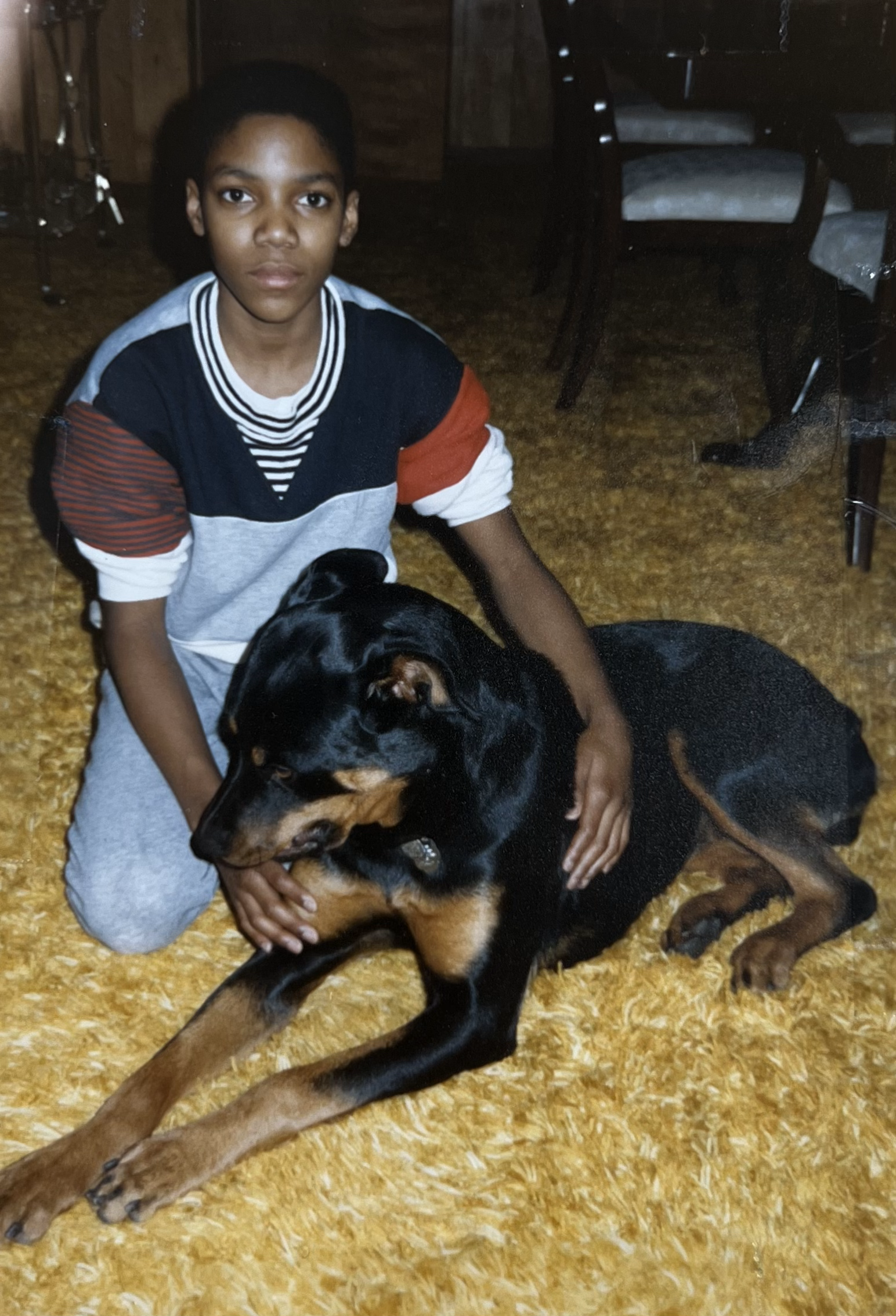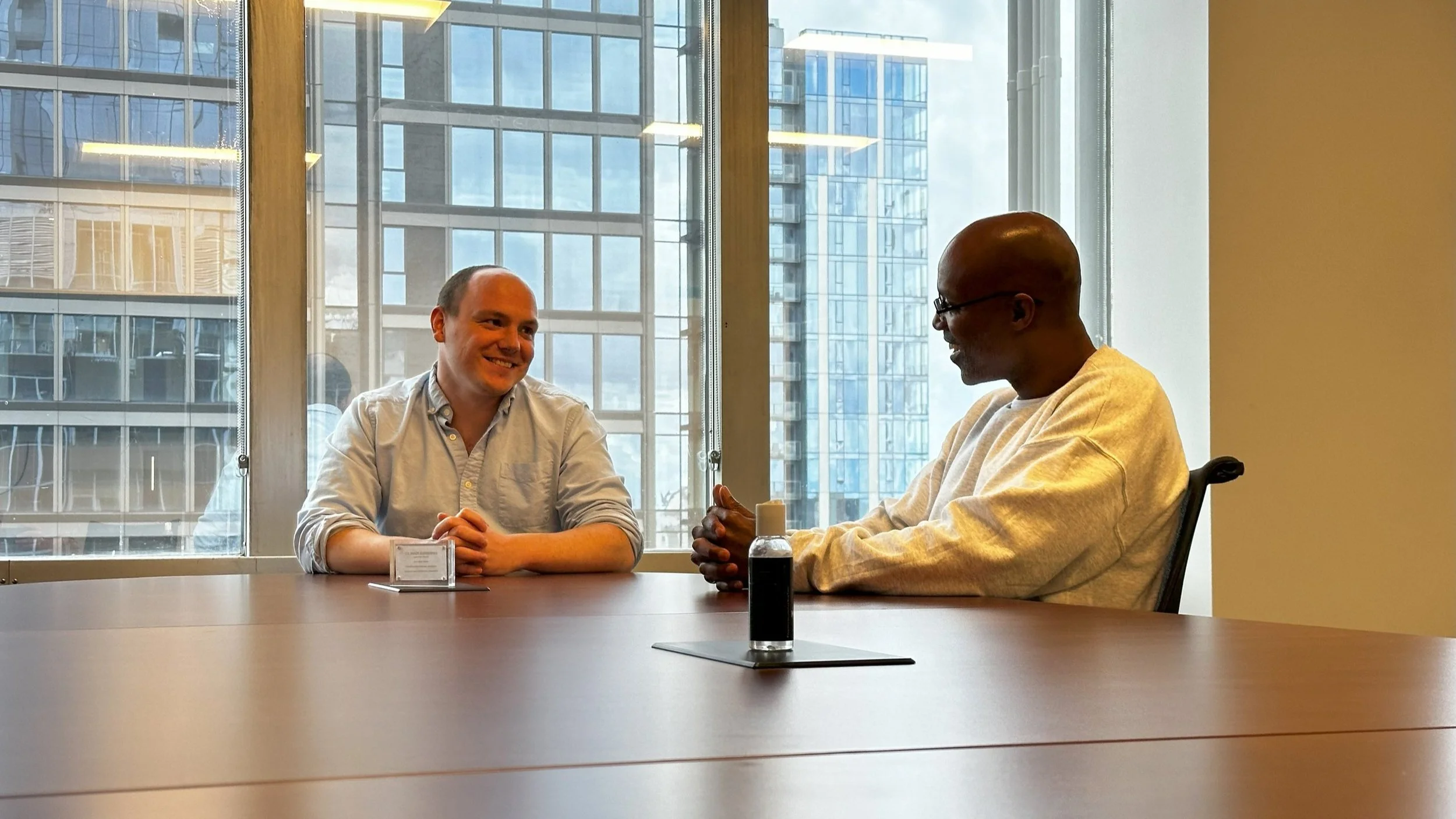Danyale Gill
Freedom Day: September 27, 2023
Danyale Gill was 18 years old and only weeks away from graduating from Madison High School (now McDaniel High School) in Portland in the spring of 1994. On the evening of March 25, 1994, he visited his uncle’s house in NE Portland and had just left there when he was wrongly identified as the perpetrator in a non-fatal shooting at the intersection of NE Alberta & 15th. Portland Police Chief Charles Moose was in the area by chance when the shooting occurred. He followed the shooter for several blocks in his car but lost sight of him. He spotted Danyale Gill about a block away from where he had last seen the shooter. Chief Moose claimed to recognize Mr. Gill by his build and clothing rather than his face.
From the start, Mr. Gill protested his innocence and denied any involvement in the crime. He told officers that he had been at a nearby house with his uncle just before the shooting, and he asked officers to perform a gunshot residue test on his hands to show he had not fired a gun. Officers refused to perform the test and never contacted his uncle.
Danyale Gill is a Black man. During his 1994 trial, the prosecutor referred to him and others as “young thugs shooting bullets at one another.” The prosecutor said to the nearly all-white jury that they might think that gun crime “is something that’s happening amongst young black gang members and…it’s not going to affect us. But that would be wrong. It happens everywhere and it’s coming your community.”
Danyale Gill was subsequently convicted by a non-unanimous jury of attempted murder, assault in the second degree, and unlawful use of a firearm.
The victim of the shooting did not appear or testify at trial. The victim later attended Mr. Gill’s sentencing hearing after being found by the defense to confirm that Gill was not the culprit. This did not deter the judge from sentencing Danyale Gill to three years in prison. Other witnesses also said that Mr. Gill was not the shooter.
At the time of his arrest, Danyale Gill was a high school student. He had also been working for several years while going to school full time. Mr. Gill did not graduate as expected due to his wrongful conviction and his life in prison was very different from the future he had been expecting. He found his incarceration extremely difficult to bear and underwent many challenges as an innocent young man in prison. Unfortunately, the experience of wrongful conviction and incarceration derailed the plans that Danyale Gill had had and sent him on a darker path, one he would likely not have otherwise followed.
After his release from prison in 1997, Danyale Gill was houseless and living in his car in Portland. He was frequently stopped by police. On one occasion, he drove off during a stop and was pursued by officers. He abandoned his vehicle and was chased on foot. He fired his gun in the direction of the officers although he did not hit anyone. Danyale Gill was subsequently convicted by another non-unanimous jury on two counts of attempted assault in the first degree, as well as charges related to drugs and running from the police.
Due to his first conviction, Danyale Gill’s sentence for his second case was significantly longer than it would otherwise have been. Oregon law allows courts to depart from sentencing guidelines and sentence defendants who have been found to be “dangerous offenders” to up to a 30-year indeterminate sentence. Mr. Gill received two dangerous offender sentencing enhancements, one for 30 years and one for 10. Without these increases which relied on his prior conviction as evidence of his dangerousness, he would likely have been released around a decade ago. With these enhancements, Danyale Gill was sentenced in 1998 to a term of incarceration that was set to continue until 2042.
While incarcerated, Danyale Gill was able to obtain affidavits from two people in 2007: an individual who admitted to being the actual shooter in 1994, and another person who stated that he was present and initiated the encounter with the victim. Mr. Gill filed a motion for a new trial based on newly discovered evidence with a letter from the shooter and an affidavit. His motion was eventually denied on procedural grounds as untimely.
The Oregon Innocence Project became involved with Danyale Gill’s case in 2018. We have spoken with those involved in the 1994 incident, as well as the victim in that case, who all continue to affirm that Mr. Gill is innocent. We have also interviewed Darnell Gill, Danyale’s uncle, who stated that his nephew was with him at a friend’s house on the night of the shooting until just before he encountered Chief Moose on the street and that his nephew was not armed. We consulted with a DNA expert who explained that the DNA evidence against Mr. Gill (a hair found on a shirt near where he was arrested) was presented to the jury in a very misleading manner and was not as reliable as the State made it appear.
Staff Attorney Alex Meggitt and Danyale Gill
Our attorneys represented Danyale Gill on post-conviction relief for both the 1994 and 1998 cases, asserting his innocence of the 1994 shooting and demanding resentencing in the 1998 cases. The post-conviction court vacated the judgments in both cases and remanded the cases to the trial court. We worked with Mr. Gill’s public defender in the 1998 case, John Sarre, and the Multnomah County District Attorney’s Office to dismiss the 1994 case against him and resolve the 1998 sentence to a plea to time served.
Our attorneys who represented Danyale Gill were Kenneth Kreuscher (Managing Attorney) and Alex Meggitt (Staff Attorney.) Former Senior Staff Attorney Brittney Plesser, Staff Attorney Kassidy Hetland, and former student interns Sara Long and Michael Cebert made intensive efforts in reviewing documents, canvassing Northeast Portland, and tracking down and interviewing crucial witnesses. Investigator Tierra Valentine also put an incredible amount of investigative work into this case.



